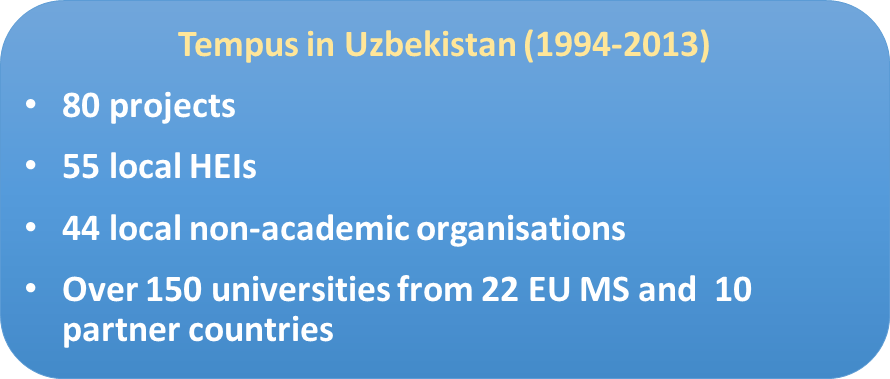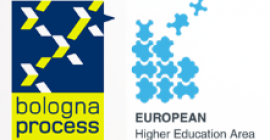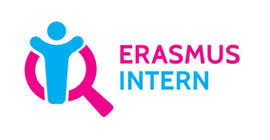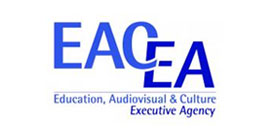TEMPUS statistics
What is Tempus?
Tempus is a European Union funded programme which supports the modernisation of higher education in the Partner Countries in Eastern Europe, Central Asia, the Western Balkans and the Mediterranean region, mainly through university cooperation projects.
Programme aims to promote the voluntary convergence of the higher education systems in the Partner Countries with EU developments in the field of higher education. In addition to promoting cooperation between institutions Tempus also promotes a “people to people” approach.
Tempus provides support to consortia of institutions composed mainly of universities or university associations. Non-academic partners can also be part of a consortium.
Tempus is open to higher education institutions and authorities, as well as all organisations and enterprises directly related to higher education.
Tempus IV (2007-2013) supports Joint Projects (JP) and Structural Measures (SM) through regular calls for proposals published on the website of the programme. Implementation of the newly selected 3-year projects of the last 6th Call of Tempus IV, which started on December, 2013, will run until the end of December, 2016.
Uzbekistan has been active in Tempus since 1994. Tempus has supported modernisation of curricula across a wide range of disciplines and contributed to ensuring their relevance to the needs of the local labour market. Tempus has also helped to modernise university governance and create new partnerships between universities and enterprises. Through creation and support of the National Team of Higher Education Reform Experts, Tempus supports the modernisation of the higher education system at a national level.
Since 1994, Tempus has funded 87 projects involving 55 Uzbek higher education institutions (HEIs) in total, including 30 regional HEIs, with an overall budget of 34 million EUR.
Short description of achievements and sustainability of Tempus projects in Uzbekistan
The Tempus programme began its activities in Uzbekistan in 1994, and more than 80 inter-university cooperation projects had been funded over 20 years with a total amount of over €34 million. In total, over 55 Uzbek HEIs and over 150 universities from 22 countries of the European Union and 10 partner countries took part in these projects (see Fig. 2). In this regard, the Tempus programme has had a significant impact on the overall process of internationalisation of higher education in Uzbekistan, as it was the only programme that provided the basis for intensive cooperation with the universities of European Union and partner countries.
The Tempus programme has been a powerful and efficient tool to support educational reforms in the country, especially since 1997, when the new Education Law and the National Programme for Personnel Training (NPPT) were adopted. The programme has become even more relevant in the recent years, as Tempus projects contributed to the implementation of government decisions on the modernization of the higher education system in Uzbekistan adopted in 2011-2012.

Curriculum development projects were particularly important due to the direct connection with the implementation of the National Programme for Personnel Training and the introduction of a two-tier higher education system. Over the years, many Tempus projects have focused on curriculum development with the introduction of new specialties, mainly at the master's level, in engineering, applied sciences, teacher training, social sciences, management and business. Moreover, since 2011 representatives of the MHSSE of the Republic of Uzbekistan have actively participated in Tempus projects (Diagram No 1) and acted as full-fledged partners in the implementation of nine Tempus projects.
The new programmes were aligned with the needs of the local labour market through the direct participation of local enterprises operating in the energy, aviation, automotive, food, textile and chemical sectors, as well as various line ministries, the Chamber of Commerce and other non-academic organizations representing key sectors of the national economy.
Several ministries, enterprises and various public and private entities and organizations have expressed interest in employing graduates trained under Tempus projects, and this led to increased demand for students who have completed training in new master programmes on food safety, water and land management, ICT, etc. increased. The numerous training laboratories created under the Tempus projects also contributed to the improvement of professional skills of specialists from enterprises that were part of project partners consortia in Uzbekistan.
The Ministry of Higher and Secondary Specialised Education noted the significant impact of the Tempus programme at the national level due to the long-term activity (since 1994) and wide participation of a large number of HEIs (over 55 HEIs from all regions of the country) out of total of 64 HEIs operating at that time, which means that coverage of the Tempus programme in Uzbekistan was about 86%
Tempus projects have been of great benefit to HEIs from various regions of the country, as due to them HEIs strengthened interaction with other domestic HEIs throughout the country, in addition to establishing long-term partnerships with many European universities.
The programme assisted in the development of quality assurance systems, introduction of Bologna Process principles and procedures into the curricula and their use for the development of new initiatives and improvement of HEI governance.
Thanks to the active engagement of the Uzbek partners who improved their project management skills, spin-off effects which were not envisaged by the initial plans were achieved under many of the projects. For example, due to the re-training courses for management staff of HEIs, a new master degree programme in educational management was introduced at the Tashkent State Pedagogical University, as well as respective optional courses at all departments.
Four Tempus projects, namely EU-TraCeFer, UnIvEnt, PROMENG and ITEDU, have contributed to the strengthening of links between different levels of education, in particular, between higher and secondary specialised vocational education. As a result of the implementation of one of them (EU-TraCeFer, project for establishment of European-Uzbek Training Center for Vocational Education Teachers in Ferghana), training centres in Tashkent and Fergana started offering re-training courses for teachers of professional colleges and academic lyceums, providing them with certificates recognised by the MHSSE.
Thanks to the active engagement of the Uzbek partners who improved their project management skills, spin-off effects which were not envisaged by the initial plans were achieved under many of the projects. For example, due to the re-training courses for management staff of HEIs, a new master degree programme in educational management was introduced at the Tashkent State Pedagogical University, as well as respective optional courses at all departments.
Four Tempus projects, namely EU-TraCeFer, UnIvEnt, PROMENG and ITEDU, have contributed to the strengthening of links between different levels of education, in particular, between higher and secondary specialised vocational education. As a result of the implementation of one of them (EU-TraCeFer, project for establishment of European-Uzbek Training Center for Vocational Education Teachers in Ferghana), training centres in Tashkent and Fergana started offering re-training courses for teachers of professional colleges and academic lyceums, providing them with certificates recognised by the MHSSE.
As a programme supporting equal and mutually beneficial cooperation, Tempus has been a vehicle for building strong international partnerships. It is important to note that after closing of the funding partnerships between HEIs from Uzbekistan and the EU were maintained through academic exchanges, joint publications and joint research or other academic projects.
Eleven projects were funded under the last 6th Tempus IV Call in 2014, due to the European Commission's decision to provide additional funding for Uzbekistan in the amount of €5 million, taking into account programme effectiveness in the country. Higher education institutions of Uzbekistan were also active participants of Erasmus Mundus, the programme complementary to Tempus which was aimed at supporting the academic mobility of students and professors, as well as strengthening interuniversity cooperation. In 2013, opportunities for learning mobility were expanded within thanks to bilateral allocation of €3 million to Uzbekistan on the top of regional budget for Central Asia.
Tempus programme in Uzbekistan provided much needed expertise in support of the three-cycle system, which replaced the previous two-stage postgraduate education system. Tempus projects and their participants provided certain support to making this decision, which demonstrated a move towards the Bologna Process. In addition, two workshops on EU experience in developing doctoral programmes were held in Tashkent in August 2013.
Tempus projects have contributed to strengthening of cooperation not just between Central Asian countries, but also between Uzbekistan and CIS partner countries. Since 2008, Uzbekistan has been involved in more projects with the participation of several countries: for example, 20 out of 30 projects under Tempus IV programme are multi-country with the participation of 46 Uzbek higher educational institutions and more than 150 universities from 10 partner countries and 22 EU member states.
Moreover, the experience that Uzbek HEIs obtained under Tempus projects became a success factor for the start of the Erasmus+ programme in the country and served as a foundation for the launch of ICM projects and bilateral cooperation with EU universities.
In November 2019, in honour of the 25th anniversary of Uzbekistan and EU cooperation in higher education, the National Erasmus+ Office in Uzbekistan presented a poster with information on achievements of the Tempus and Erasmus+ programmes and their impact on the development of higher education system. The poster shows all activity areas in the past and in the present, as well as further prospects in a view of the implementation of the Concept for the Development of Higher Education until 2030, using infographics. A banner with a link to the poster was posted on the website of the MHSSE.









